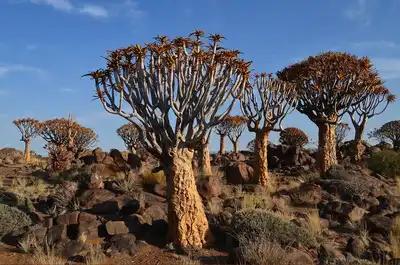Climate Change in South Africa And How to Combat it

Photo by UGVERTRIEB on Pixabay
Climate change is one of the biggest challenges facing the world today. The effects of climate change are being felt worldwide as heat waves, droughts, and floods become more frequent. That’s why we need to redouble our efforts to cut greenhouse gas emissions and tackle the challenge of climate change head-on. Read on to learn more about how climate change affects South Africa and what you can do to help reverse its effects.
What is Climate Change?
Climate change is a change in the world’s climate, which refers to the long-term averages and conditions of the atmosphere and oceans. The climate system includes all the air, water, and soil elements that affect the weather. When we talk about climate change, we’re referring to a shift in the climate that lasts for decades or longer. Most climate scientists agree that the leading cause of climate change is human activities, such as burning fossil fuels that produce greenhouse gases. These gases trap heat in the atmosphere and cause the planet to warm up. When we burn wood, coal, natural gas, or other fuel types, we release carbon dioxide (CO2) into the atmosphere. It’s this CO2 that is not only causing the planet to warm up, but it’s also changing how the weather behaves.
Climate Change in South Africa
South Africa is one of the countries predicted to experience significant climate change due to its high sensitivity to the effects of climate change. The country’s climate is predominantly tropical or semi-arid, with about 80% of the country located in the tropics. These conditions make South Africa particularly sensitive to changes in temperature. While climate change will affect people and ecosystems across the country, it is expected to have notable effects on the agricultural sector. As temperatures rise, so will the frequency of extreme weather events such as droughts and floods, which have the potential to disrupt food production and food security. The tourism industry is also expected to be significantly affected by climate change. South African destinations must adapt their practices to accommodate changing weather patterns to attract tourists.
Why is Climate Change a Problem?
The impacts of climate change are already being felt worldwide, and they pose serious threats to our environment and society. Increased temperatures: The average global surface temperature has risen by 1.1 degrees Celsius since 1900. The rate of warming during the past few decades has been more significant than at any other time in the past century. But that’s just the beginning. Scientists expect temperatures to rise by 2.6 to 4.8 degrees Celsius by the end of the century—and possibly, even more, depending on how much CO2 we release into the atmosphere. Increased extreme weather events: Climate change also leads to more intense and frequent extreme weather events such as heat waves, droughts, wildfires, and floods. These will put ecosystems, biodiversity, and humans at risk differently.
Ways to Combat Climate Change In South Africa
The best way to combat climate change is to reduce your carbon footprint by adopting more sustainable practices.
– Stay informed: The first step in fighting climate change is to become informed about the issue: Monitor global climate change and its effects on your country.
– Reduce your energy use: Make efforts to reduce your energy consumption, including reducing your reliance on fossil fuels and using clean energy sources such as solar and wind power.
– Reduce your food waste: By reducing your food waste, you are helping to reduce the emissions associated with agriculture, which is the world’s largest source of CO2 emissions.
– Reduce your waste: Reduce the amount of waste you produce by recycling, composting, and reusing materials where possible.
Climate-friendly travel tips
If you decide to travel, be mindful of the potential environmental impacts of your travel decisions. Here are a few tips to keep in mind when planning a trip.
– Research your transportation options. Avoid traveling by air whenever possible. If you are traveling by air, find out if it’s possible to offset your carbon emissions.
– Avoid single-use plastic as much as possible. Use reusable bags, water bottles, and travel cups as often as possible.
– Stay in touch with local events and climate change news in your area. When you return, you can use what you learned to help inform others about the issue.
By the Numbers: The Effects of Climate Change in South Africa
– By 2030, the risk of extreme weather events is expected to rise, posing a threat to ecosystems and biodiversity.
– Extreme temperatures and growing water scarcity are expected to impact crop yields, decreasing food security.
– Rising sea levels and more intense storms pose severe threats to coastal and marine ecosystems.
– A rise in temperatures is expected to result in more deaths due to heat-related illnesses.
How You Can Help Fight Climate Change
There are many small steps you can take to help fight climate change. Here are a few ideas: Inform your friends and family members about the effects of climate change. Share articles and videos on social media and talk to your friends and coworkers about ways they can reduce their carbon footprint. Make small changes to your daily routine that can add up to a big difference. Have a conversation with your family about ways they can reduce their carbon footprint.
Summary
Climate change is a severe threat to our environment, and it is essential to be aware of how it affects our daily lives. Luckily, there are many things that people can do to combat climate change. By reducing energy use, eating less meat, and traveling sustainably, you can help slow the rate of climate change and protect the planet for future generations.





